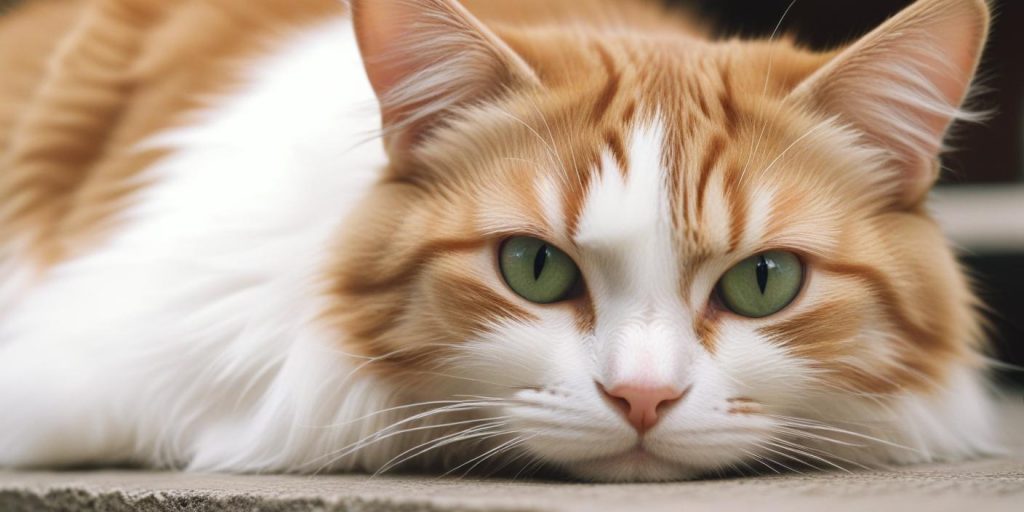How to Tell if Your Cat is Dying
As a pet owner, it can be heartbreaking to witness your cat in a state of decline. Although it’s difficult to think about, understanding the signs of a dying cat can help you make the most compassionate decision for their well-being. Cats are often very good at hiding illness or pain, so it’s important to be vigilant for subtle changes in their behavior. Here are some common signs that may indicate your cat is nearing the end of their life.
1. Loss of Appetite and Thirst
A dying cat may stop eating and drinking. This is one of the most common signs that their health is deteriorating. If your cat is consistently refusing food or water for a prolonged period, it could be a sign that they are nearing the end of their life. Additionally, if they are eating but losing weight rapidly or drinking excessively, it may indicate a serious health condition.
2. Severe Weight Loss or Muscle Wasting
If your cat is losing weight despite having a normal appetite, or if they appear to have muscle wasting (where their muscles feel weak or underdeveloped), this can be a sign of a serious health issue. Weight loss can be a result of cancer, kidney disease, or other terminal illnesses.
3. Changes in Behavior or Personality
Cats are creatures of habit, and any sudden changes in behavior or personality can indicate a problem. A dying cat may become more withdrawn, hide in dark or quiet places, or refuse to interact with family members. They may also seem disoriented or confused, wandering aimlessly or staring into space. On the other hand, some cats may become unusually clingy, seeking constant attention and comfort from their owners.
4. Breathing Changes
Breathing changes can be an alarming sign that your cat is dying. This may include labored or shallow breathing, difficulty breathing, or even panting. If you notice your cat’s breathing is rapid or uneven, or if they are struggling to breathe, it’s important to seek veterinary care immediately. These changes could indicate respiratory failure or heart issues.
5. Incontinence or Difficulty Moving
A dying cat may have difficulty controlling their bladder or bowels. If you notice your cat urinating or defecating outside the litter box, or if they seem unable to move or stand up, it may be due to weakness or pain. Cats that are near the end of their life may also lose coordination and have trouble walking or climbing stairs.
6. Severe Lethargy or Unresponsiveness
A cat that is dying may spend most of the day sleeping, and they may be difficult to rouse. If your cat is unresponsive to stimuli, or if they seem to have no interest in anything, it’s a sign of significant physical decline. Lethargy can be caused by many different conditions, so it’s important to take your cat to the vet for a thorough examination.
7. Abnormal Grooming or Lack of Grooming
Cats are typically fastidious groomers, so if your cat is no longer grooming themselves or if they have an unkempt appearance, this may indicate they are in pain or very ill. On the other hand, some cats may over-groom in an attempt to soothe themselves during their final days.
8. Vomiting or Diarrhea
Frequent vomiting or diarrhea can be a sign of illness in cats, especially in the final stages of life. This may be caused by organ failure or a terminal illness. If your cat is unable to keep food down, or if their stools are consistently abnormal, it’s a sign that their health is deteriorating.
9. Cold or Pale Gums
When a cat is dying, blood circulation may slow down, causing their gums to appear pale or even blue in color. Their body temperature may also drop, and they may feel cold to the touch. If you notice that your cat’s gums are pale or they feel unusually cold, this could be a sign of circulatory failure.
10. Excessive Hiding
While cats sometimes retreat to quiet spaces when they are not feeling well, a cat that is nearing the end of their life may spend most of their time hiding. This is often a natural instinct to protect themselves from feeling vulnerable. If your cat is hiding for extended periods and is not interested in socializing, it may indicate they are nearing the end.
What You Can Do
If you suspect that your cat is dying or seriously ill, it’s essential to consult with a veterinarian as soon as possible. They can provide a diagnosis and help you manage your cat’s symptoms, ensuring that they are comfortable during their final days. Your vet may offer pain relief, hydration, and other forms of palliative care to make your cat’s last days more peaceful.
It’s also important to spend time with your cat during this time, offering comfort, love, and companionship. Your presence can provide your cat with a sense of security, making their final moments less frightening.
Conclusion
The signs that a cat is nearing the end of its life can be subtle, and not all cats will exhibit the same symptoms. As a pet owner, the most compassionate thing you can do is observe your cat carefully, consult a veterinarian when needed, and ensure that your cat is as comfortable as possible during their final days. Though the experience of losing a pet is deeply emotional, providing your cat with love and care in their final moments can offer both you and your feline companion some peace.






